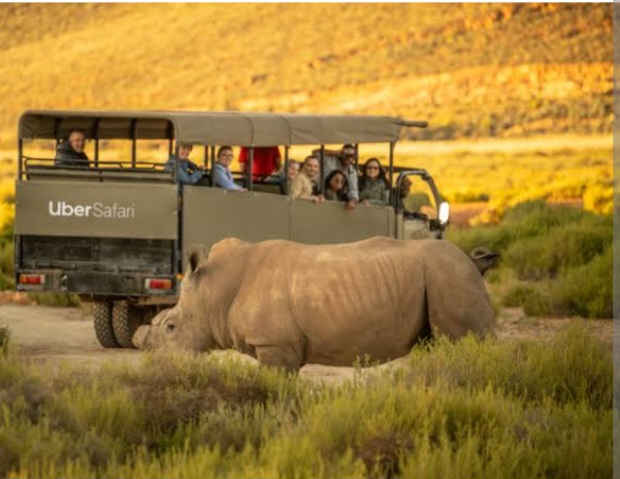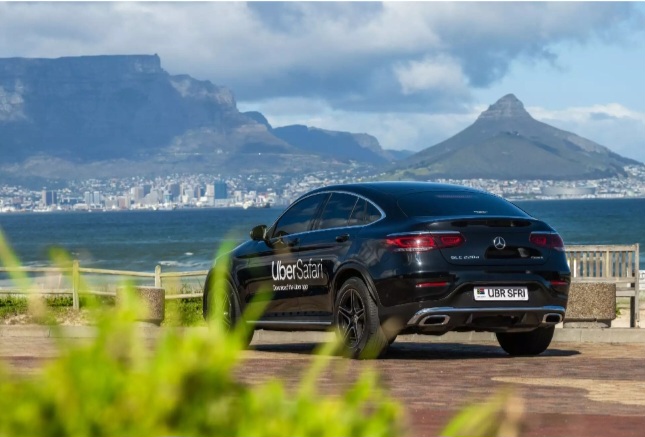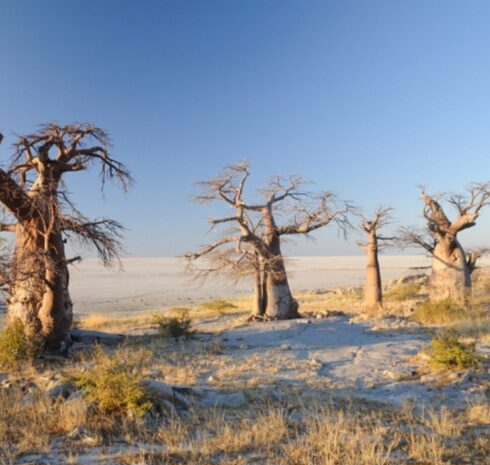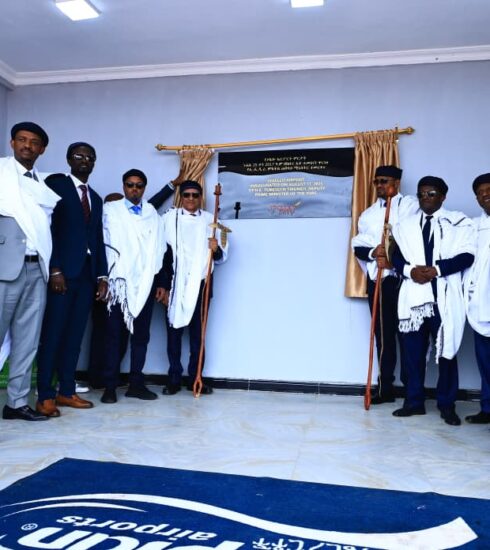Uber Safari: A New Innovation in South African Tourism
Uber has launched a unique and exciting service called Uber Safari, which aims to boost tourism in South Africa by offering a hassle-free, luxury wildlife experience. This initiative, part of Uber’s broader “Go Anywhere” series, caters to tourists and locals alike, providing them with convenient access to one of South Africa’s most iconic experiences—viewing the Big Five.

What is Uber Safari?
Starting in October 2024 and running until February 2025, Uber Safari offers passengers a full-day trip from Cape Town to the Aquila Private Game Reserve, located about two hours away. The service includes transportation in an Uber Safari-branded vehicle, a welcome toast, lunch at the reserve, and a guided game drive where guests can spot lions, elephants, buffaloes, leopards, and rhinos.
Operating exclusively on Fridays and Saturdays, this experience costs around R3,550 ($200) and accommodates up to four guests per Uber vehicle, making it perfect for small groups and families. The service also ensures convenience by allowing users to book trips up to 90 days in advance using Uber’s Reserve feature.
Benefits of Uber Safari
1. Accessibility and Convenience
Uber Safari bridges the gap for tourists or locals who may not have access to private transportation, enabling them to easily visit a game reserve. This service brings the safari experience to urban dwellers and tourists staying in Cape Town without the hassle of planning or navigating long drives.
2. Time Efficiency
The service is a full-day experience but minimizes the complexities of self-organizing a trip. Guests enjoy a smooth journey with Uber from their Cape Town location to Aquila, followed by a well-organized safari, and are dropped back in the city—maximizing the experience within a limited timeframe.
3. Wildlife Conservation Support
Uber Safari’s partnership with Aquila Private Game Reserve also benefits wildlife conservation efforts. Aquila is known for its work in preserving South Africa’s biodiversity and protecting endangered species. This service indirectly supports these initiatives by promoting eco-tourism, contributing to local conservation projects.
4. Increased Tourism Revenue
By expanding accessibility to game reserves for both local and international visitors, Uber Safari could drive increased foot traffic to these sites, boosting their revenue. South Africa’s tourism sector, which was severely impacted by the COVID-19 pandemic, could benefit from such innovations that make iconic experiences more accessible and appealing.
5. Attracting New Tourist Segments
With its fixed pricing and modern convenience, Uber Safari could attract younger travelers and digital nomads who prefer using technology for easy bookings. The use of the Uber app for such a unique experience appeals to tech-savvy users and first-time safari-goers, potentially expanding South Africa’s tourist demographic.

Impact on the Tourism Sector
Uber Safari’s launch represents a shift toward more tech-integrated tourism services in South Africa. By making safaris more accessible through an app, Uber taps into an underserved market of tourists who might otherwise skip the logistical challenges of visiting remote reserves. This not only benefits tourists but also creates new revenue streams for Uber and its partners, while boosting the country’s tourism offerings.
1. Revitalizing Tourism After the Pandemic
Post-pandemic tourism has focused on outdoor experiences that allow for social distancing, making safaris an attractive option for travelers. Uber Safari caters to this demand by offering a safe and socially distanced outdoor activity, helping revive interest in South Africa’s wildlife tourism.
2. Promoting South Africa’s Wildlife Heritage
South Africa is home to some of the world’s most renowned game reserves and wildlife, yet many international tourists struggle to organize trips beyond the major cities. Uber Safari provides a solution, making it easier to visit key wildlife destinations from urban hubs like Cape Town. This can lead to an increased awareness and appreciation of South Africa’s natural beauty, promoting further investment in eco-tourism.
3. Job Creation and Economic Benefits
By increasing visitor numbers to the Aquila Game Reserve, Uber Safari can help create jobs in the local tourism industry. More demand for safaris can lead to hiring more guides, drivers, and hospitality workers, boosting the local economy and creating opportunities for skill development in eco-tourism.
Uber Safari is an innovative step forward for South Africa’s tourism sector. It simplifies access to one of the country’s most sought-after experiences, while also promoting conservation efforts and boosting the local economy. As the country looks to recover from the pandemic, initiatives like Uber Safari could play a vital role in revitalizing interest in South Africa’s natural heritage, making wildlife adventures more accessible to both locals and international visitors alike.
By integrating technology and tourism, Uber is setting a precedent for how traditional experiences can be modernized to fit the needs of today’s travelers, ensuring the sustainability and growth of South Africa’s tourism industry in the years to come.







